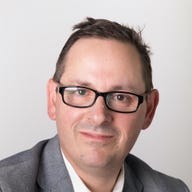Another day, another expert carved up in the TPG-VHA merger case

Vodafone Hutchison Australia's (VHA) legal counsel, James Arnott, continued grilling Wylde Capital's David Neal and poking holes into the Australian Competition and Consumer Commission (ACCC) witness' testimony on Tuesday morning.
Neal continued to hold his line that his understanding of the telecommunications industry was limited, saying his views and opinions were formed based on information provided to him by TPG executives.
Back in the early days of the case, it was revealed TPG had put their financiers over a barrel by providing a short amount of time from when TPG won a slice of the 700Mhz spectrum at auction to decide how they could finance the deal.
Read more: TPG put key investor 'over a barrel'
Neal said Macquarie, one of the financiers, was therefore forced to take a conservative view as to how they could finance the transaction. Neal said that, based on his experience working at a number of investment banks, the 36 hours Macquarie had to assess the financing proposal was very short.
Neal said the price that TPG paid for the spectrum resulted in negative sentiment in the market but he added that other factors were in play. But in what was continual refrain, he said "I am not a telecommunications expert" when asked what other factors could have influenced TPG's ability to receive a return on the investment in spectrum.
That response was repeated so many times that Arnott almost turned it into a running joke.
Neal's online biography mentions expertise in a number of fields, including telecoms.
Part of Neal's report discussed the expected discount that was applied in the transaction. However, when pushed, Neal said his calculation of the rate was "more of an art than science" and that while he could explain the reasoning for drawing his conclusions in words, he couldn't do so with numbers. He said that his reasoning was there "by implication" but not explicitly set out.
Neal's analysis was based on recent capital raising exercises although they did not relate specifically to telecommunications projects. Arnott argued that the data Neal used for his analysis and report weren't relevant to the TPG transaction.
Questioning then turned towards TPG's previous capital raisings, such as the one following TPG's acquisition of iiNet as well as other funding for TPG's previous network rollout. Neal said he did not consider previous TPG financing when conducting his analysis. According to Arnott, that puts into question Neal's ability to predict what would happen for a future capital raising if TPG was to build a mobile network using the spectrum it acquired.
VHA and TPG's case largely hangs on demonstrating that TPG does not have the capacity to build Australia's four mobile network.
Adam Haigh, a radio solutions manager for Nokia, was next in the stand as another witness for the ACCC.
VHA legal counsel, Dr Ruth Higgins, questioned Haigh, starting with what Haigh knew about TPG's aspirations to build a 5G network. In evidence, Haigh's affidavit stated that "TPG needed a clear path to 5G". Higgins asked why 5G was so important, with Haigh responding that capacity management, performance, end-user experience, and emerging use-cases meant all mobile network operators would want to look at 5G.
Haigh said that TPG, if it decided to move ahead with plans to build a network, would want to do so quickly. But at that point of the cross-examination, the court was cleared as the evidence that was to be given was deemed confidential.
The case will continue into early next week before Justice Middleton delivers a judgement later this year.
RELATED COVERAGE
- ACCC says TPG consultant 'had no idea' in TPG-VHA merger case
- Ericsson asked about 'favourite children' in Vodafone/TPG blocked merger case
- Teoh wanted his TPG kingdom to be a mobile operator 'no matter what': ACCC
- TPG profits halved from abandoning mobile network rollout after Huawei ban
- ACCC on TPG-Vodafone: Consumers need the benefits of vigorous competition
- TPG reiterates claim of needing Vodafone merger post-Huawei ban
- ACCC opposes TPG and Vodafone Australia merger